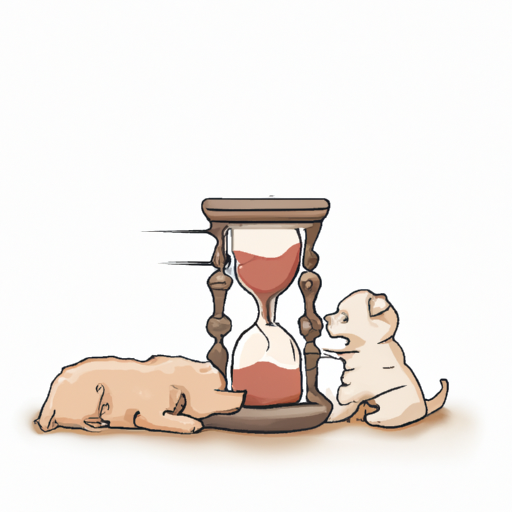As a pet owner, you may have noticed how rapidly your pooch seems to age compared to humans. One moment, they’re a playful, energetic puppy, and within a few years, they’re a mellow, mature dog. It’s heartbreaking and puzzling, isn’t it? Why do dogs age so fast? This article will delve into the science behind why dogs age at a faster rate than humans. We’ll also discuss how this knowledge can help you provide the best care for your furry friend.
Table of Contents
- Understanding Canine Aging
- Factors Influencing Dog Aging
- How to Calculate Dog Age in Human Years
- How to Care for an Aging Dog
- Frequently Asked Questions
Key Takeaways
- Dogs age faster than humans due to various biological and genetic factors.
- Different breeds age at different rates.
- Proper care and nutrition can help slow down the aging process in dogs.
- Understanding your dog’s age in human years can help you provide age-appropriate care.
Understanding Canine Aging
Dogs age faster than humans due to several biological and genetic factors. They mature quickly and reach adulthood within their first couple of years, while humans take around 18 years to reach adulthood. This scientific article explains more about the genetic factors behind the rapid aging in dogs.
For a more in-depth understanding of canine aging, consider this internal link. It provides valuable insights into how dogs age and how their biological clock differs from ours.
Factors Influencing Dog Aging
Several factors influence how fast a dog ages. Some of these include:
- Breed: Smaller breeds tend to live longer than larger breeds. For example, a chihuahua may live up to 17 years, while a Great Dane’s lifespan averages around 7-10 years.
- Weight: Overweight dogs are more prone to diseases and health complications, which may accelerate aging.
- Genetics: Some breeds are genetically predisposed to certain health conditions that can affect their lifespan.
- Nutrition and Exercise: A balanced diet and regular exercise can help slow down the aging process.
For tips on keeping your dog healthy and slowing down the aging process, check out this internal link.
How to Calculate Dog Age in Human Years
Contrary to popular belief, the old adage that one dog year equals seven human years is not entirely accurate. The American Veterinary Medical Association suggests a more nuanced approach to calculate your dog’s age in human years.
Here’s a simple table to help you understand:
| Dog’s Age | Human Age (Small Breeds) | Human Age (Large Breeds) |
|---|---|---|
| 1 Year | 15 Years | 15 Years |
| 2 Years | 24 Years | 24 Years |
| 5 Years | 36 Years | 42 Years |
| 10 Years | 56 Years | 78 Years |
To delve deeper into how to calculate your dog’s age in human years, here’s an internal link.
How to Care for an Aging Dog
As your dog ages, their needs will change. It’s important to adjust their diet, exercise, and healthcare routine accordingly. Regular vet check-ups are crucial to detect any potential health issues early.
Frequently Asked Questions
Q: Why do small dogs live longer than large dogs?
A: Scientists believe that large dogs age at an accelerated pace due to the energy and resources their bodies use for growth.
Q: Can I slow down my dog’s aging process?
A: While you can’t stop aging, you can certainly slow it down by providing a balanced diet, regular exercise, and regular veterinary care.
Q: How can I tell if my dog is getting old?
A: Signs of aging in dogs include graying hair, decreased physical activity, changes in sleeping patterns, and increased health issues.
In conclusion, understanding why dogs age faster than humans can help us provide the best care for our furry friends. Aging is a natural part of life, but with proper care, we can ensure our dogs live their golden years in comfort and happiness.



